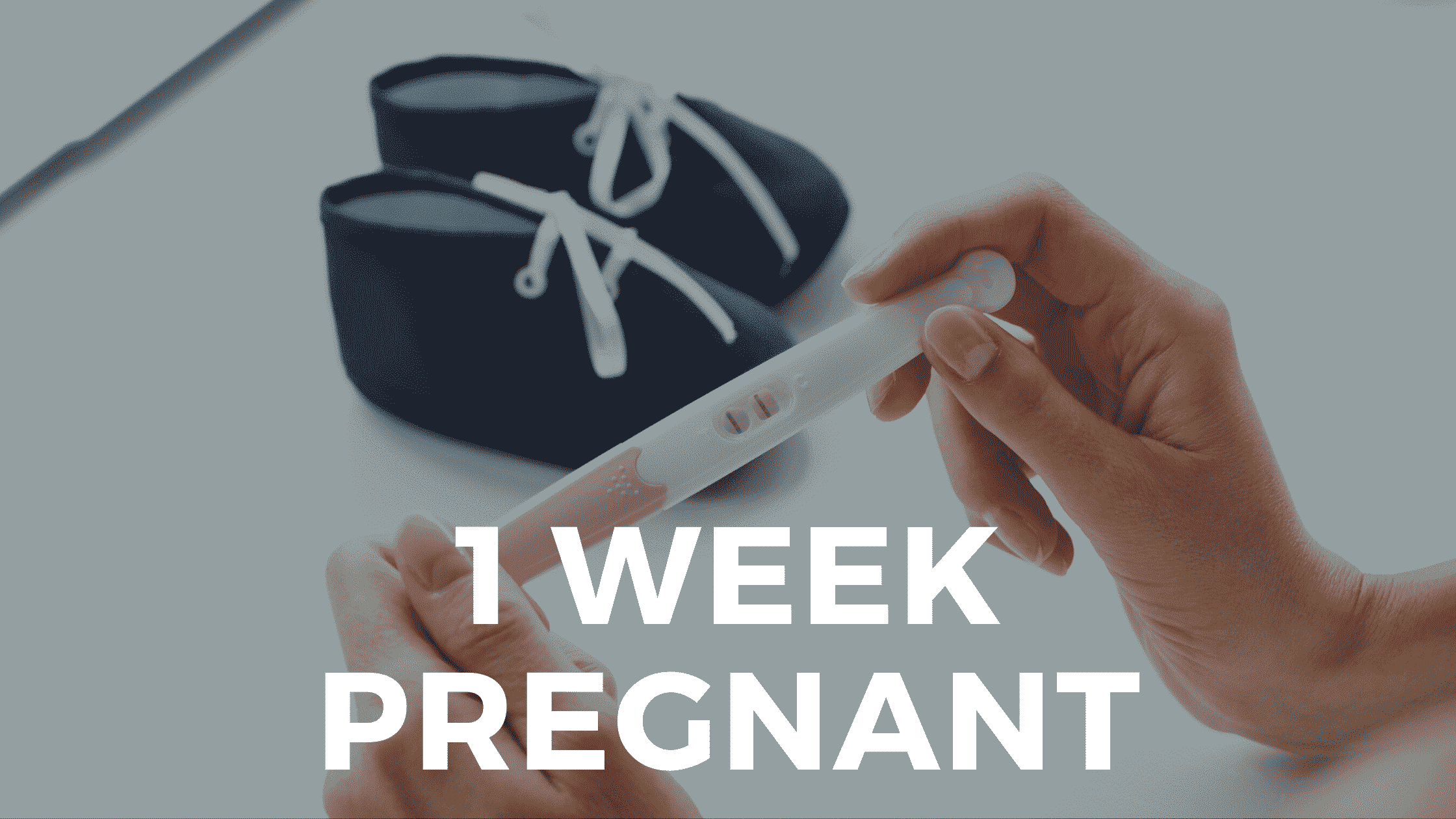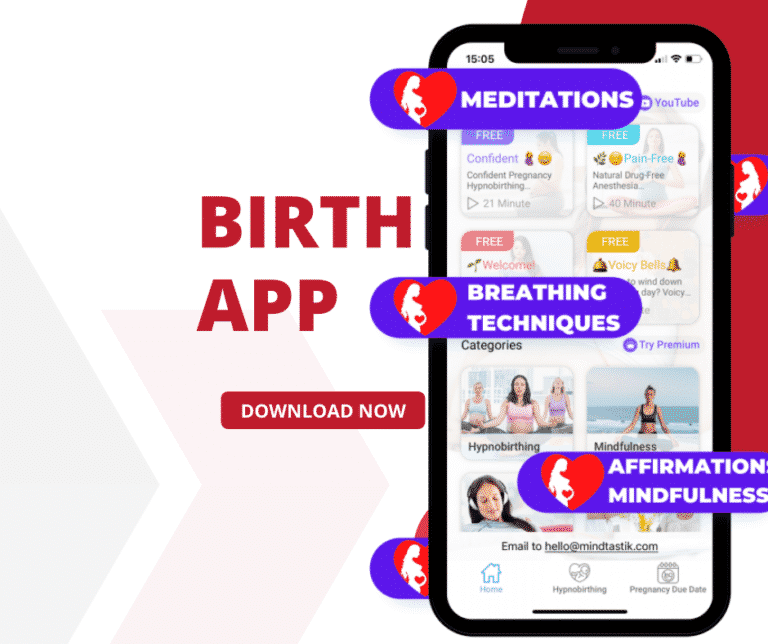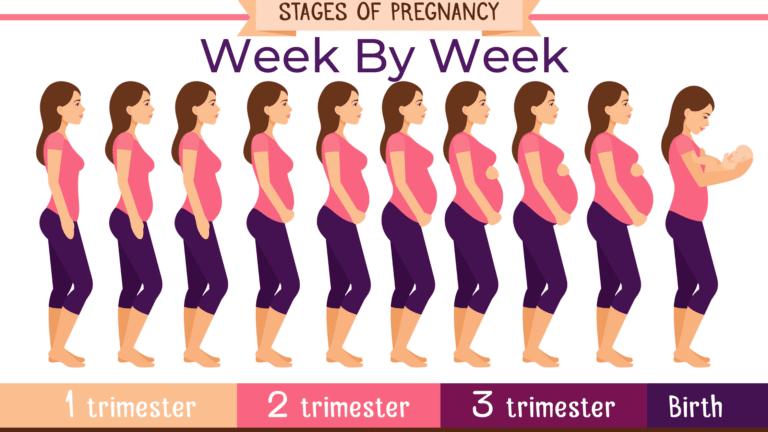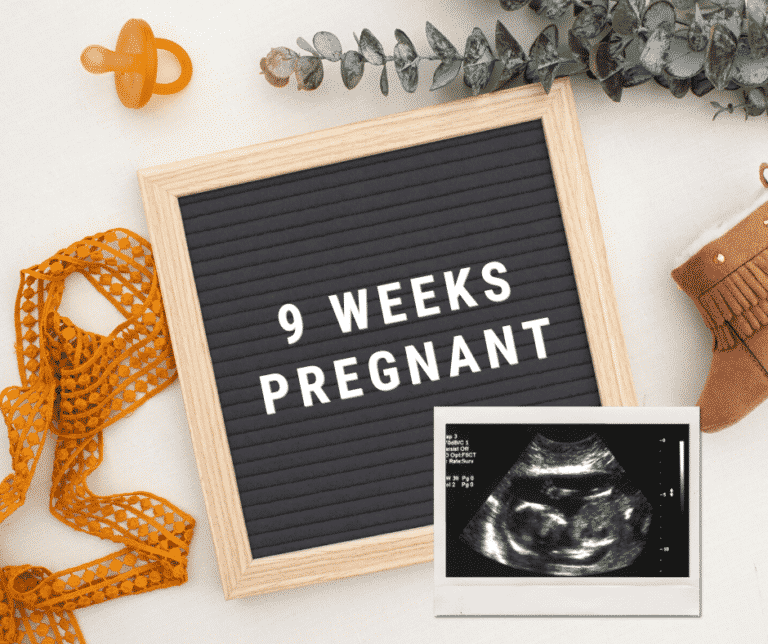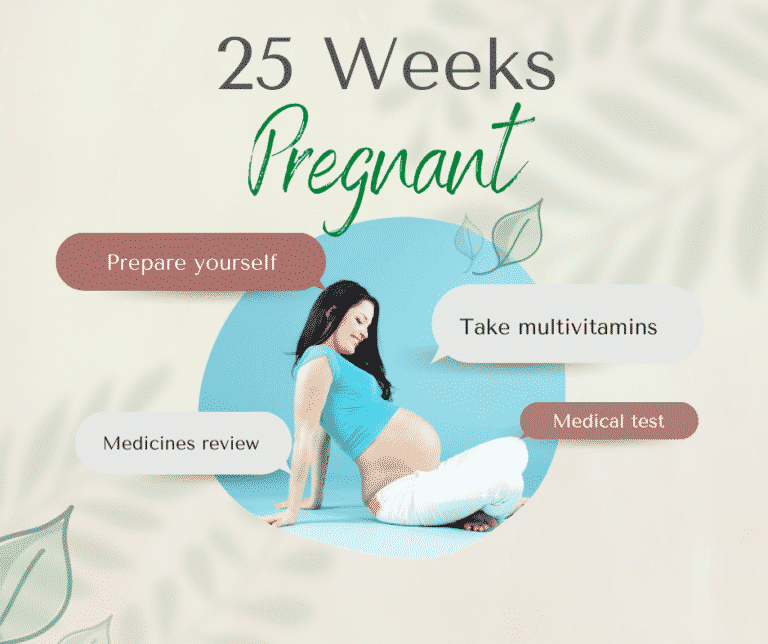1 Week Pregnant: What to Expect in the 1st Week of Pregnancy
Published on January 23, 2022 – Last Updated on May 10, 2022
When you find out you’re pregnant, the very first thing you want to know is what to expect in the coming weeks. What will your body be going through? What changes can you expect to see? How will your pregnancy progress? This post will walk you through everything that happens while you are 1 week pregnant. Remember that every pregnancy is different, so not everything outlined here will happen to every woman. But if you’re anxious to find out what’s in store for you, read on!
1 Week of Pregnancy: Early Pregnancy Symptoms
The first week of pregnancy begins when a fertilized egg implants itself in the uterus lining. Since this event usually happens unnoticed, early pregnancy symptoms are unlikely to be felt at this point. However, by the end of week 1 after conception, hormonal changes will already occur in women’s bodies that make them feel different.
The most common signs of early pregnancy are:
- Mood Swings
- Bloating
- Cramps or mild discomfort in the lower abdomen
- Tiredness, fatigue, or sleepiness
- Breast tenderness or changes in nipple color, shape, and size.
- Headache
- Food cravings
- Moodiness
- Frequent urination or an increase in the need to use the bathroom
These symptoms may vary from woman to woman. Some women may have none of them. Others may have most of them. Some women will not experience any early signs of pregnancy at all, but if you are having unprotected sex, it’s best to assume that you are pregnant until you have a negative test.
Your baby at week 1 of pregnancy
Your baby is just a single cell in the first week of pregnancy. It’s so small that it couldn’t be seen without a microscope. But even though it’s tiny, this one-celled baby has begun to grow and change in ways that will shape its whole life. In fact, all of your baby’s organs are growing at this stage! If you could see inside their body right now, they would look more like a ball of cells than anything else. So you might think they don’t do much at this point but rest assured: They’re hard at work building everything from fingers to toes!
At the end of week 1, your baby is still only about as big as the head of a pin (0.5 cm, or about 1/5 of an inch). But they’re already changing. Everything from their head to their toes is taking shape and growing. They’ve got a beating heart and brain waves too!
1-week pregnant belly
An expectant mother often feels excited and apprehensive during her first pregnancy. During the first week, it is common for the woman’s belly to feel bloated, and she may even feel some cramping as her body adjusts to the new pregnancy. By the end of the week, she may feel more tired than usual and notice that her breasts are beginning to swell. Despite these changes, it is essential to remember that the baby is still very tiny at this stage, and there is no need to worry about its safety. In fact, many women find that their 1-week pregnant belly begins to feel more comfortable as the pregnancy progresses.
1 Week Fetus
One week after fertilization, the embryo is officially classified as a fetus. All of the major organs and systems are present at this stage, although they are still in the early stages of development. For example, the heart is beginning to beat, and the neural tube, eventually becoming the brain and spinal cord, is starting to form.
Although the fetus is only about the size of a grain of rice at this point, it is rapidly growing and developing. Despite its small size, the 1-week fetus is a complex and unique individual, with its own DNA and fingerprint. This individual has the potential to grow and develop into a healthy baby, given a chance to thrive in a safe and supportive environment.
Tips for a Healthy Pregnancy
If you want to have a healthy baby, it’s essential to follow some important tips. At this early stage, you can relax and take care of yourself by eating well and staying active. You shouldn’t worry about your baby at this point—they’re still very small! Just make sure that you are taking good care of yourself so that your body is ready to nurture them as they grow.
- During the 1st week of pregnancy, avoid alcohol and cigarettes. Both of these substances can hurt your fetal development! If you do drink or smoke, make sure to limit yourself as much as possible.
- These early weeks are a great time to start taking a folic acid supplement, one of the best prenatal vitamins. Folic acid is a vitamin that is important to have when you are pregnant because it prevents certain birth defects. You can take folic acid in pill form, or you can get it from eating leafy green vegetables.
- At week 1 of pregnancy, avoid long-term medication use whenever possible. Most drugs are safe to take during pregnancy, but a few should not be used at this point. If you need drugs to treat a chronic condition, ask your doctor if it’s OK to continue taking them during pregnancy or if you should wait until after you give birth.
- Don’t take hot baths or showers at this point in your pregnancy. Heat can be bad for an unborn baby! Make sure that the water is not overly hot, and try to limit your time in the shower or bath.
- During week 1 of pregnancy, you can take care of yourself by eating a healthy diet and exercising regularly. Always check with your doctor before beginning any new exercise routine during this early stage, but most doctors will recommend that you stay active as long as it feels comfortable for you. Try low-impact exercises that are good for your heart, like walking or swimming. These activities will give you the most benefit. Check out the healthy food post for more information.
If you have any questions about whether it is safe to do an activity, always ask your doctor before trying it out.
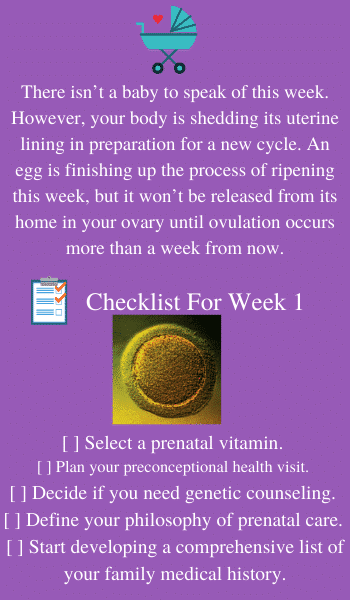
Make sure to check out our Pregnancy Week by Week post where you can find great information for each stage of pregnancy based on weeks.
Is a pregnancy ultrasound necessary at 1 week pregnant?
You do not require an ultrasound at the beginning of pregnancy. However, your doctor can perform a preconception check if your pregnancy does not go well. Check out our ultrasound gallery.
How do I determine my due date?
A normal pregnancy lasts anywhere from 37 to 42 weeks after conception, but you can calculate your estimated due date if you are concerned about when you might give birth.
To calculate your due date, add one year to the first day of your last menstrual period and then count forward 40 weeks from that number. For example, suppose you have a regular 28-day cycle. In that case, it is possible to know when approximately you ovulated. If you can remember roughly when you ovulated, count forward 14 days from that date, and you should arrive at your estimated due date.
The Due Date Calculator is simple to use when entering your last menstrual period (LMP) or your birth date. The health system will use LMP for an estimate of your expected due date. Due dates are usually estimated as 280 days (or 40 weeks) starting the day you start the menstrual cycle. Remember that you’re not technically expecting after the initial weeks of pregnancy when this process generates your due date. This is why you may not notice these very early pregnancy symptoms as you start your pregnancy.
Is 1st week of pregnancy a good time for a home pregnancy test?
You can take a home pregnancy test at any point in your cycle after you have missed your period. Early detection of the hormone that indicates pregnancy, Human Chorionic Gonadotropin or HCG, can be detected from around 6-12 days after ovulation. Therefore, the earliest that pregnancy can be detected with a home pregnancy test is around four days before your expected period. This is usually past the time window of implantation bleeding, which can occur at 5-6 days after ovulation.
Advice for Partners
It is important to have a discussion on the topic of pregnancy before trying. Partners should be checked for STIs and get treatment if necessary. They should also know that their reproductive health may improve by not drinking too much alcohol or smoking cigarettes (or using recreational drugs). Many studies are showing how these habits can affect male fertility—so don’t wait until it becomes an issue!
If you and your partner are worried about fertility, you may want to read our pregnancy crystals post.
Mental Preparation for the Pregnancy Journey
Pregnancy can be a time of great change for you and your body. So many physical changes are happening all at once, as well as emotional stressors like hormone fluctuations that could affect both mental health and pregnancy outcomes in various ways! To help prepare yourself before conception or while expecting a baby, there are some things we recommend doing, such as:
- getting enough sleep (which helps regulate hormones)
- identifying social support systems so they know how much guidance/company their partner needs during this exciting yet stressful phase of life, making sure our providers see us through every step if needed because nobody knows what tomorrow may bring!
- Start practicing meditation or hypnobirthing, which are proven to be beneficial for your pregnancy.
Do you think it is necessary to see a doctor before trying? It sure can be very helpful since there are many things that we do not know about our bodies, especially if we have not been taught or had the time for self-education. So please take care of yourself and seek medical guidance whenever needed.
Conclusion
This post should have given you a good idea of what to expect when you’re one week pregnant. You can use this information as a guideline for your own pregnancy and feel more prepared for the weeks ahead. If you want additional help, we’ll be here with answers to all your questions! Leave your comment below, and make sure to check out our pregnancy week by week!
Other Pregnancy Weeks:
- 2 Weeks Pregnant
- 3 Weeks Pregnant
- 4 Weeks Pregnant
- 5 Weeks Pregnant
- 6 Weeks Pregnant
- 7 Weeks Pregnant
- 8 Weeks Pregnant
- 9 Weeks Pregnant
- 10 Weeks Pregnant
- 11 Weeks Pregnant
- 12 Weeks Pregnant
- 13 Weeks Pregnant
- 14 Weeks Pregnant
- 15 Weeks Pregnant
- 16 Weeks Pregnant
- 17 Weeks Pregnant
- 18 Weeks Pregnant
- 19 Weeks Pregnant
- 20 Weeks Pregnant
- 21 Weeks Pregnant
- 22 Weeks Pregnant
- 23 Weeks Pregnant
- 24 Weeks Pregnant
- 25 Weeks Pregnant
- 26 Weeks Pregnant
- 27 Weeks Pregnant
- 28 Weeks Pregnant
- 29 Weeks Pregnant
- 30 Weeks Pregnant
- 31 Weeks Pregnant
- 32 Weeks Pregnant
- 33 Weeks Pregnant
- 34 Weeks Pregnant
- 35 Weeks Pregnant
- 36 Weeks Pregnant
- 37 Weeks Pregnant
- 38 Weeks Pregnant
- 39 Weeks Pregnant
- 40 Weeks Pregnant
- Birth Plan
- Baby Due Date Calculator
- EDD Calculation
- how many weeks pregnant I am

